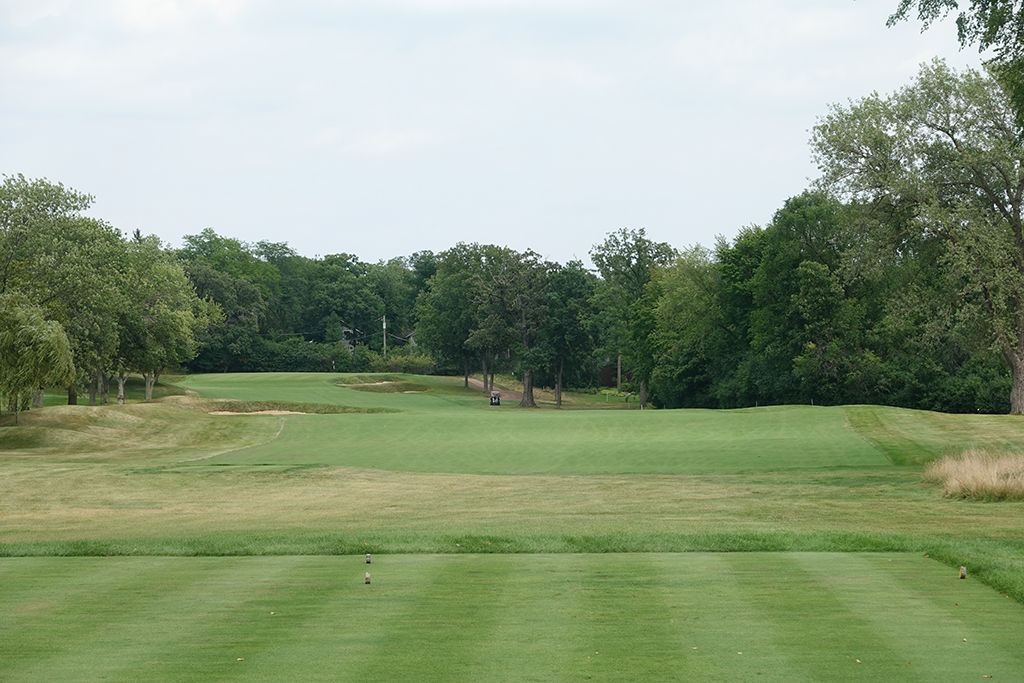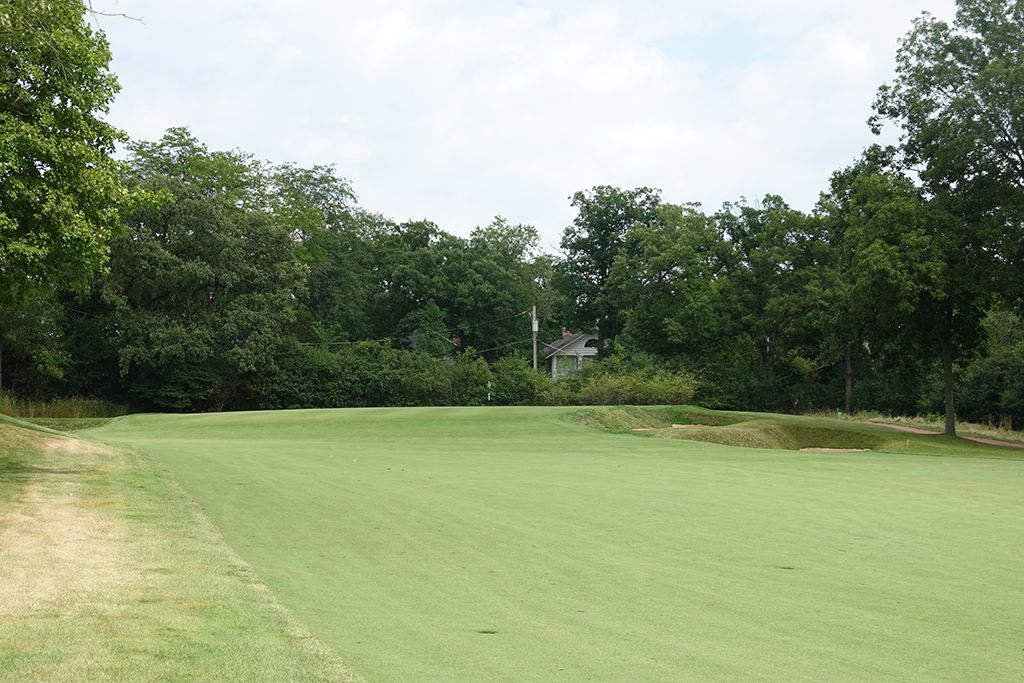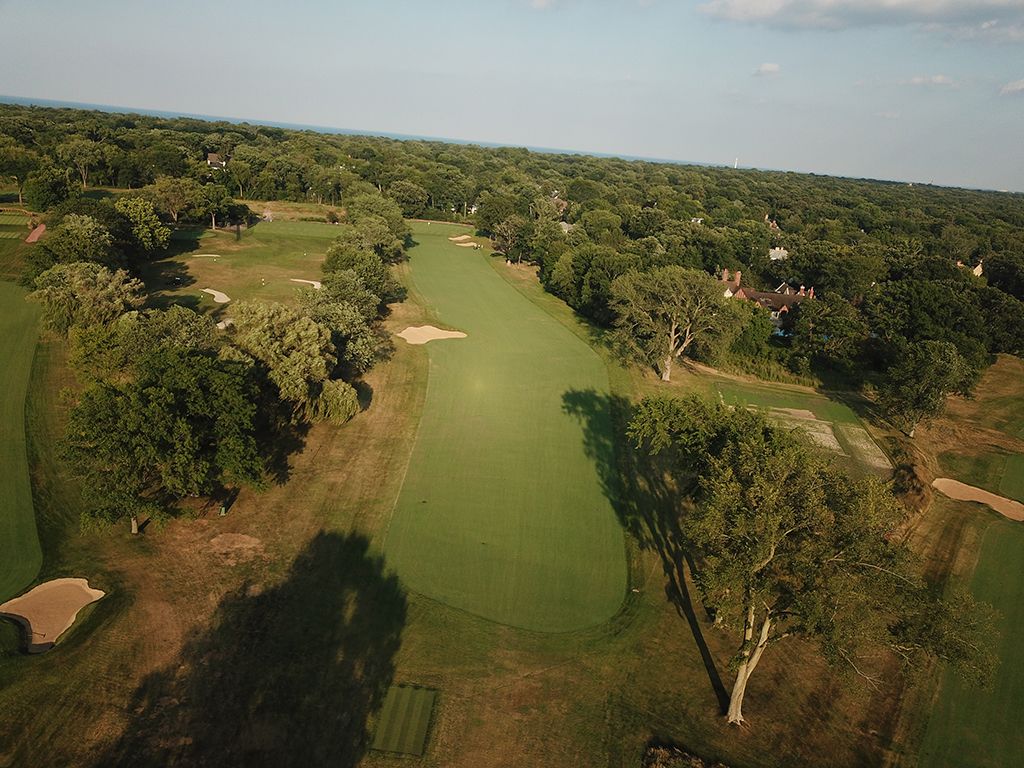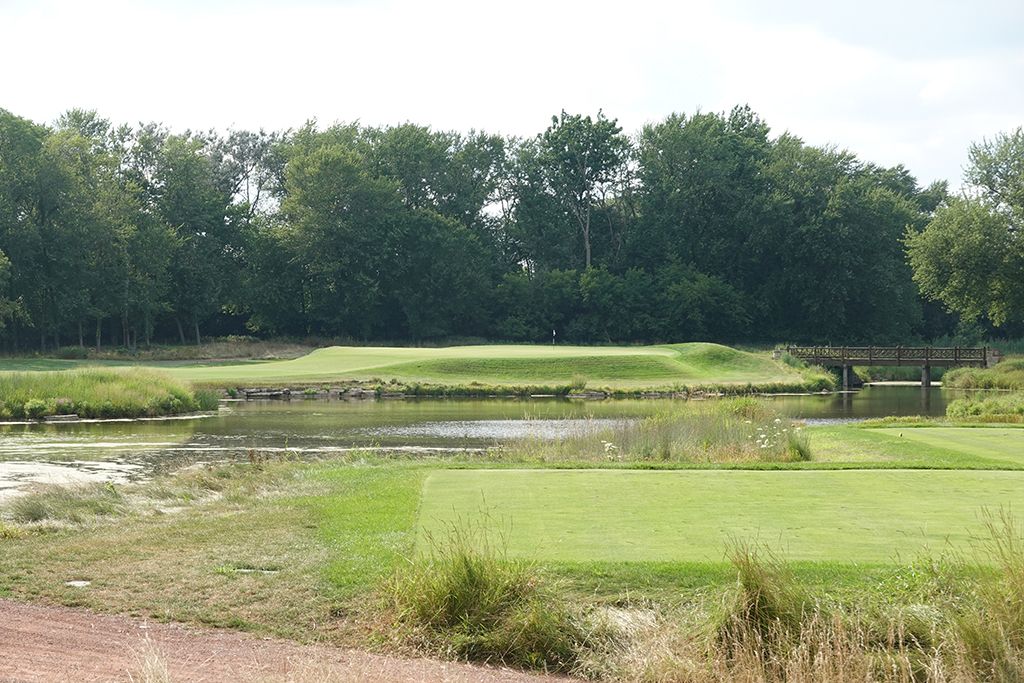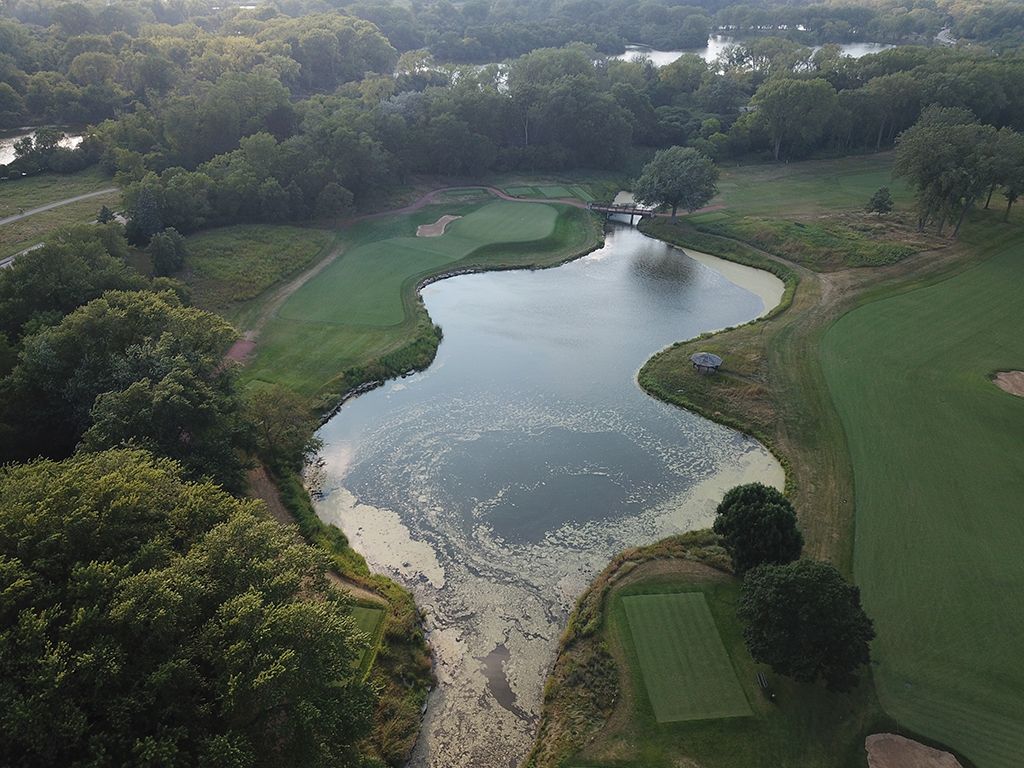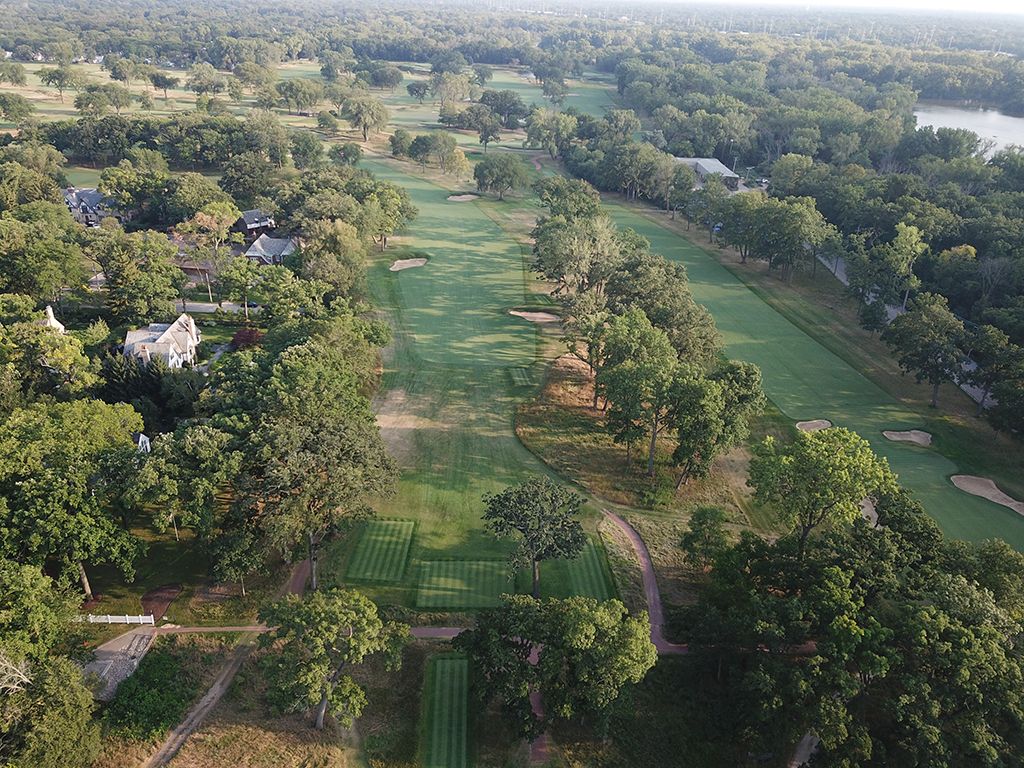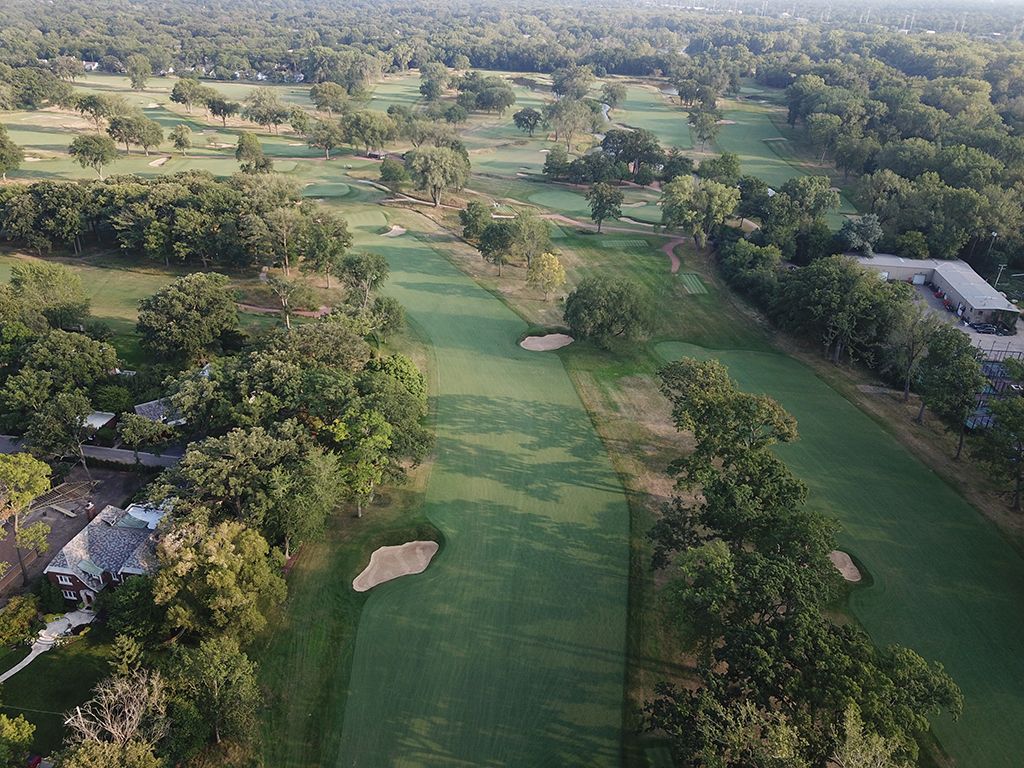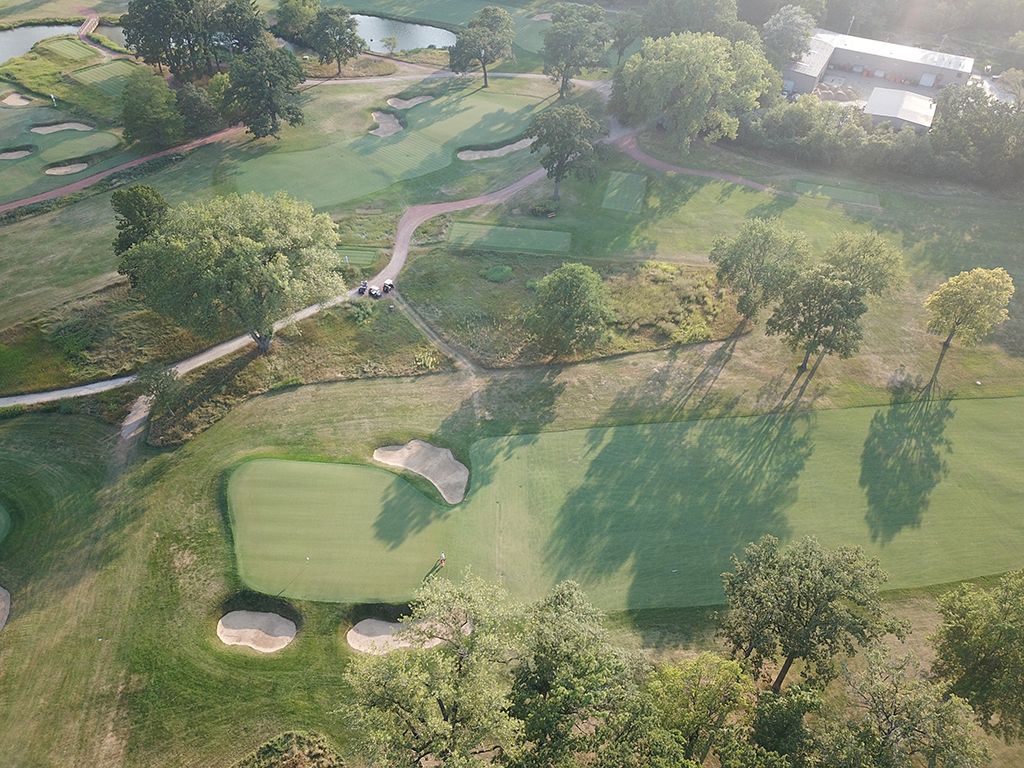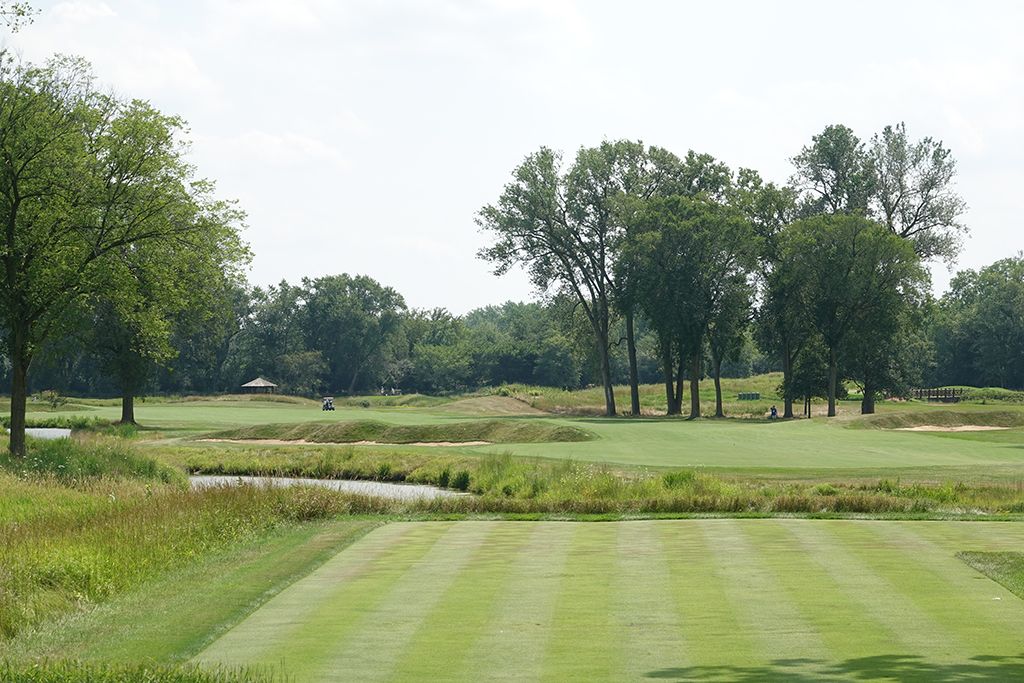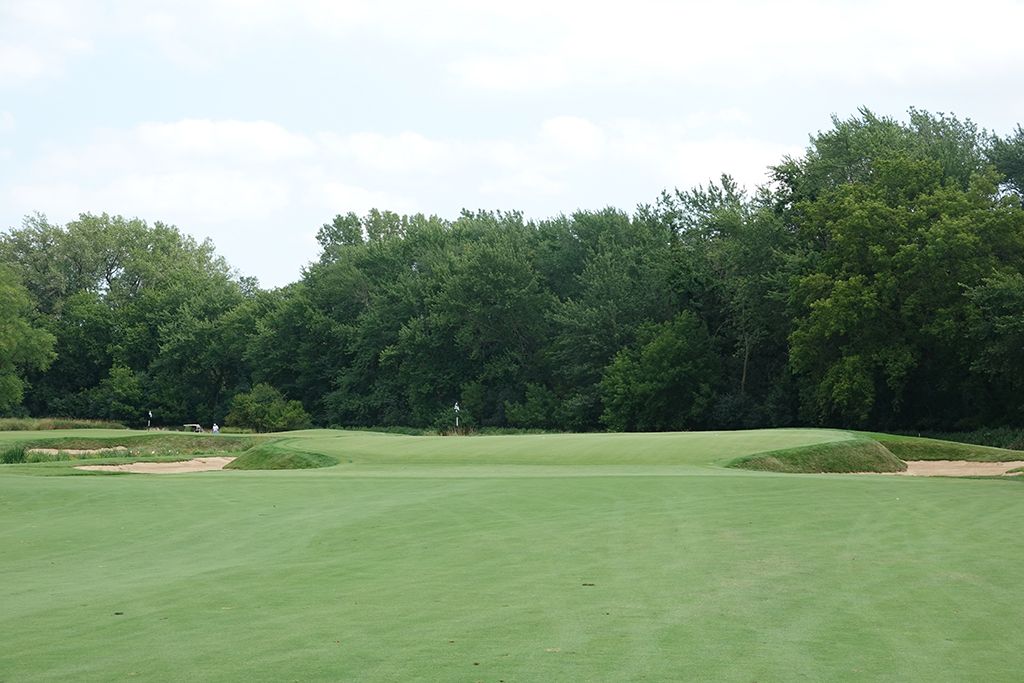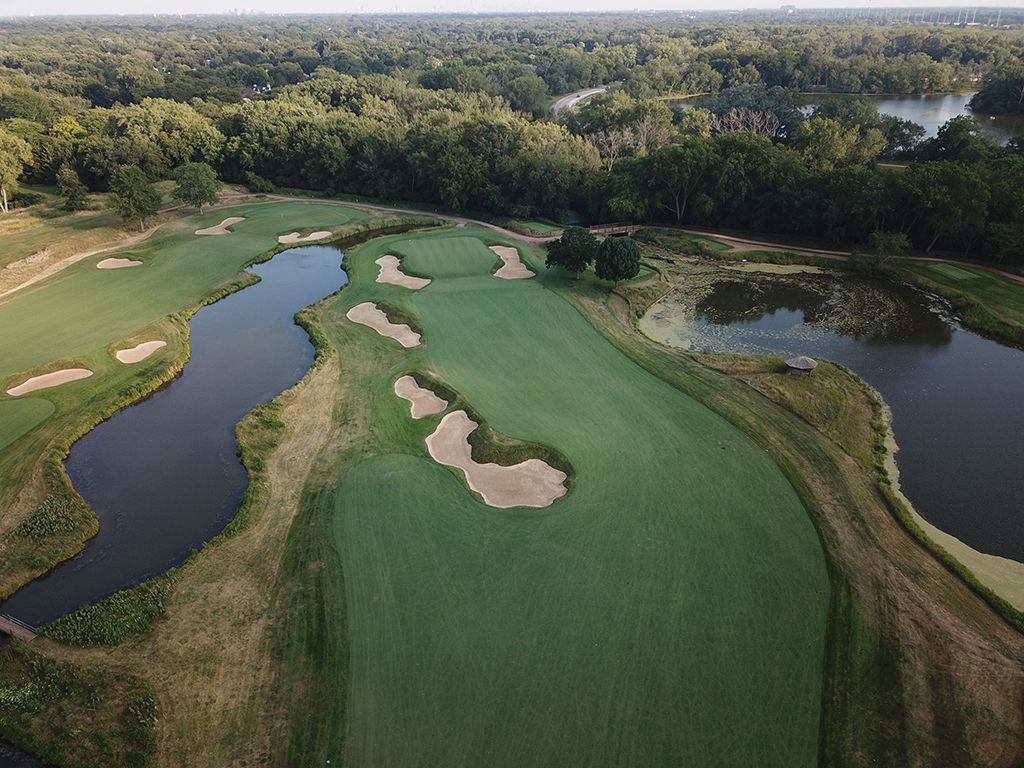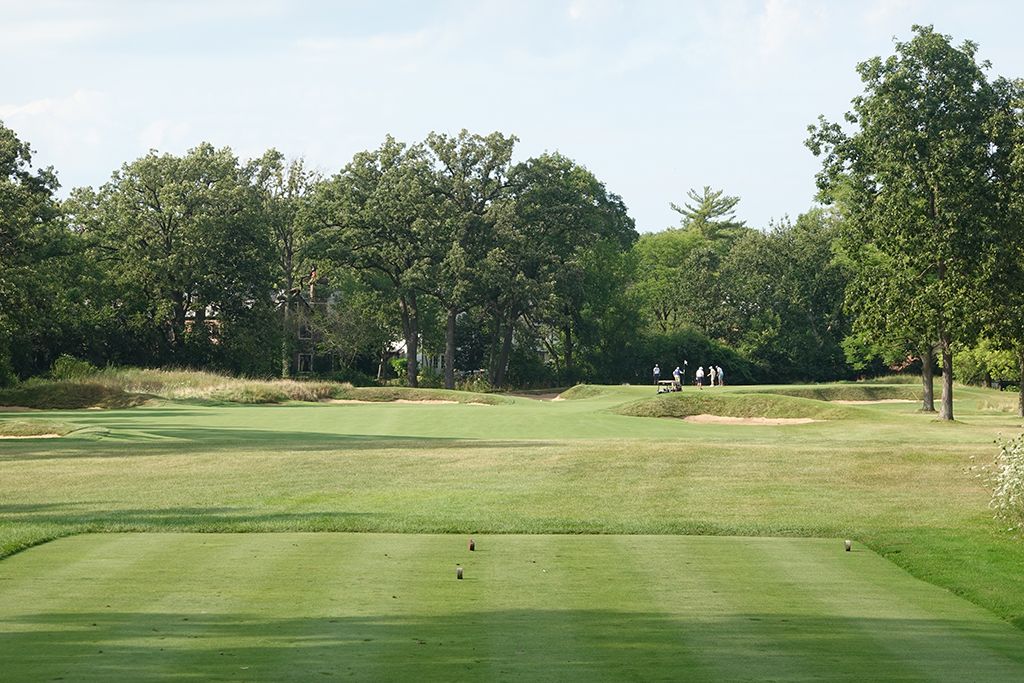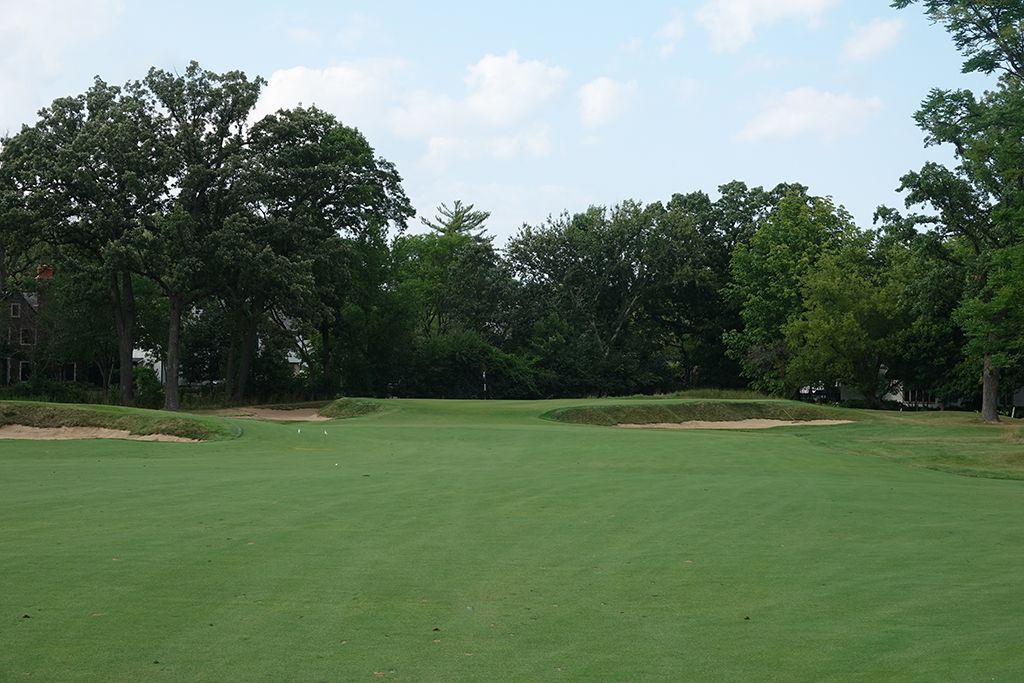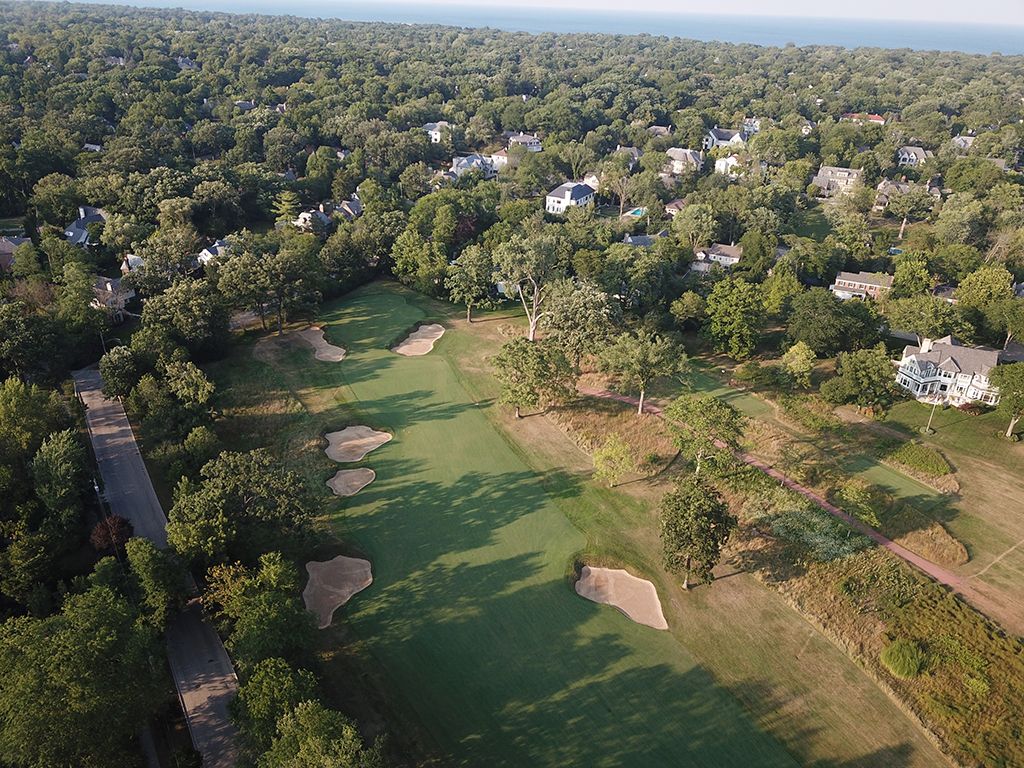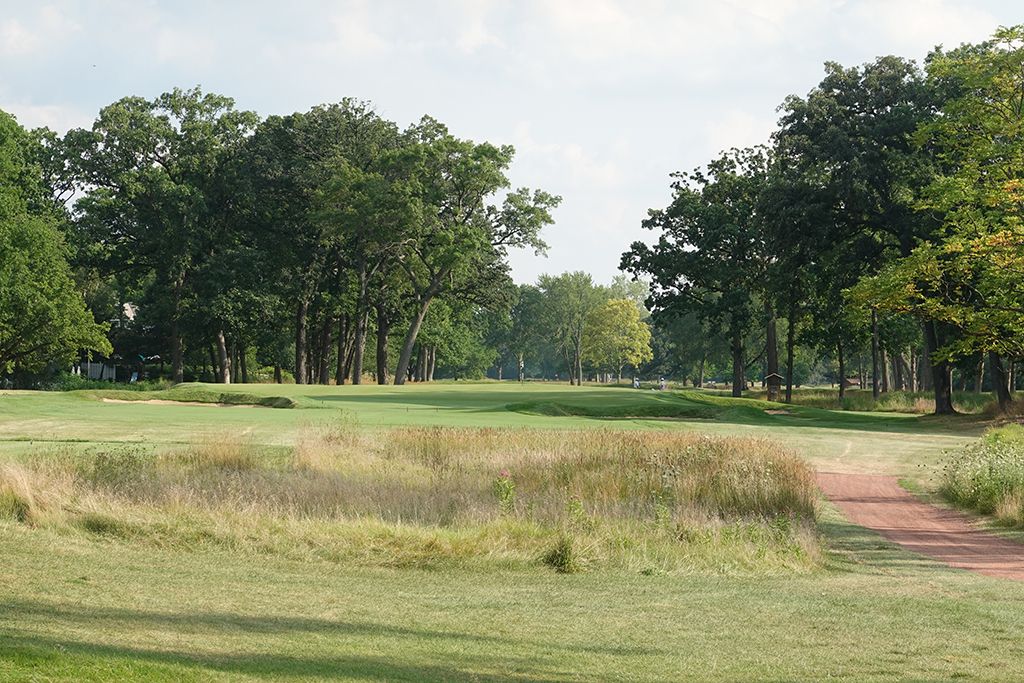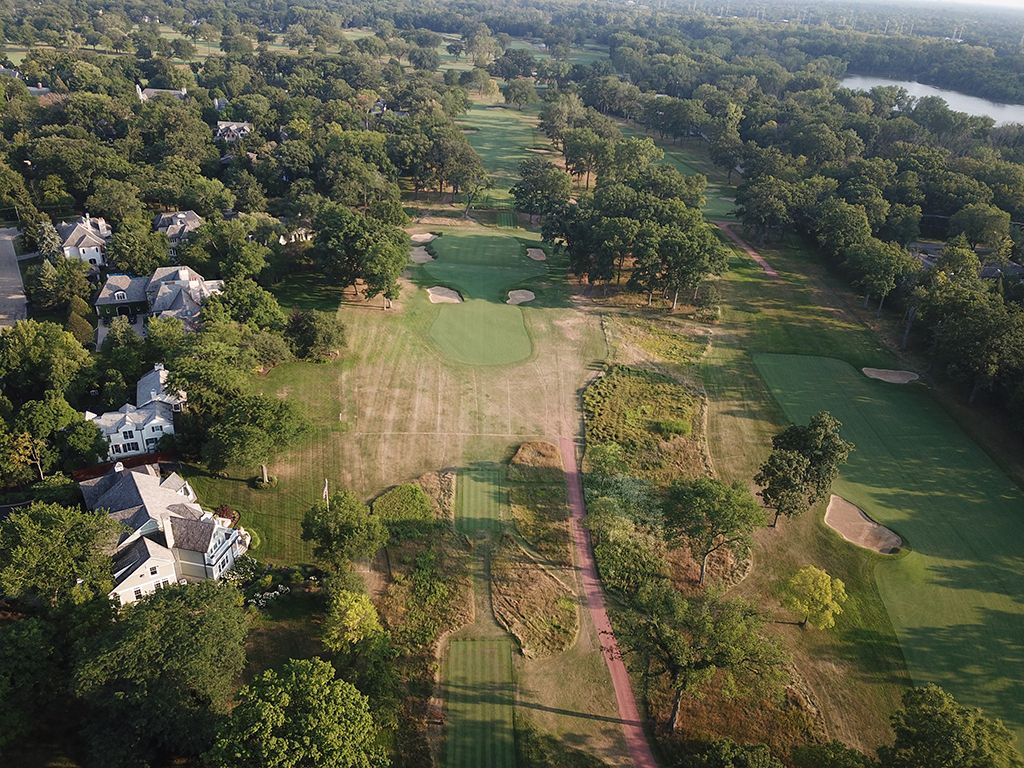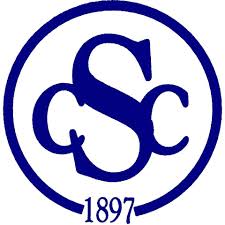 Golf Course Review by: Billy Satterfield
Golf Course Review by: Billy Satterfield
Rankings:
The Takeaway: Skokie feels much more natural and secluded than it should for being located inside a Chicago housing suburb. The course is solid from start to finish with well conceived holes highlighted by excellent bunkering, a meandering creek, and some of the best green complexes around. Grade B+
Quick Facts
Designer: Donald Ross in 1914 (Original layout by Tom Bendelow in 1904; remodel by William Langford in 1938)
Cost: Private
Phone Number: (847) 835-0600
Course Website: Official Website - Visit Skokie Country Club's official website by clicking on the link provided.
Directions: Get here! - 500 Washington Ave, Glencoe, Illinois 60022 – UNITED STATES
Photos: See additional photos of Skokie Country Club
What to Expect: Skokie is a historic gem for the Chicago area and a total surprise of how natural it looks and feels for being located in a 100 year old neighborhood. The firm and fast conditions combined with the natural looking roots can be attributed to Ron Prichard's work which spanned many years but started in 1999 and the bulk of which is credited to 2008. The green complexes were expanded to restore Donald Ross and William Langford's original work and the result is some of the finest putting surfaces and surrounding bunkers you'll come across in the Midwest. The interior contours of the greens is what will set an impression on most players and makes the course a special experience. While many architects have worked on Skokie, the course today consists of one Tom Bendelow hole, ten Donald Ross holes, and seven from William Langford. The clubhouse sits at the high point of the property which provides downhill tee shots to the parallel running 1st and 10th holes as they descend westerly in the opposite direction to the 18th and 8th that run uphill above and below those openers respectively. The remaining holes play on mostly flat terrain that is kept interesting through the excellent placement and dimension of the bunkers paired with water features that come into play on five of the holes; most notably with the creek that meanders between the parallel running par fives found at the 3rd and 11th. With three par 3s spaced out on the front nine, Skokie plays to a par 71 which is one more than the par 70 the course played to in 1922 when Gene Sarazen ousted Bobby Jones by a single stroke to win the U.S. Open. If you are looking for variety, it is tough to find much better than what Skokie offers. Golfers never play the same par back to back until reaching the par four 14th and 15th holes. The different directions the holes run is ideal for handling wind from any direction which add interest and playability over the long haul Whether you choose to walk this nicely routed course or take a cart, a caddie will accompany guests throughout their round. Ultimately, Skokie stands as a Midwest treasure with elite level green complexes, a dose of history, and a routing that features great variety.
By the Numbers
| Tees | Par | Yardage | Rating | Slope |
|---|---|---|---|---|
| Championship | 72 | 7100 | 74.4 | 141 |
| Blue | 72 | 6593 | 72.1 | 136 |
| Yellow | 72 | 6308 | 70.8 | 133 |
| White | 72 | 6004 | 69.4 | 130 |
| Red (Women) | 72 | 5939 | 74.7 | 137 |
| Green (Women) | 72 | 5555 | 72.7 | 133 |
Individual Hole Analysis
Signature Hole: 8th Hole – 432 Yard Par 4 – The only Tom Bendelow hole remaining is also Skokie's best. This mid length par four ascends steadily uphill and plays a fair amount longer than the scorecard indicates. The beauty is in the strategy and shot making of this hole with its classic risk/reward scenario. The superior angle on the approach shot is from the left side of the fairway, but that is also where a large bunker awaits to ruin virtually any chance of reaching the green in two. From the safer right side there is more fairway to play with, but the approach is a challenging angle that plays over a pair of cavernous bunkers flanking the right side of the green. The ideal play is a big drive over the bunker on the left that opens the angle into the green that features a sloped front and needs to be calculated when gauging the amount of power placed into the approach shot. I love this hole and it is one of the best two-shotters in the Midwest.
Best Par 3: 12th Hole – 228 Yards – You can't hide from this hole; you have to step up and hit a quality golf shot. Playing over a pond to a plateaued putting surface, this is one of the most difficult greens in regulation at Skokie and pars deserve a small celebration. If you aren't feeling confident then the miss is pulling it left and hope you land on the short grass leading up to the putting surface rather than the bunker hugging that side. This is a big carry and a stout test at the furthest place from the clubhouse.
Best Par 4: 17th Hole – 454 Yards – The closing three holes will test your mettle at Skokie and this late dogleg left is a significant reason why. Designed in trios, three fairway bunkers come into play alternating right and left sides followed by three more greenside bunkers; two on the left and one on the right. 280 yards will be required off the tee to reach the last fairway bunker on the right and is a good target as long as you stay just short of it. The approach shot opens up from that side as it is easy to get blocked out if you get aggressive up the left side. With sand pinching the front of the putting surface, you'll have to bring your shot in aerially unless you have the accuracy of a sniper.
Best Par 5: 3rd Hole – 568 Yards – The first three-shotter of the course comes at the 3rd and plays from right to left. The tee shot should skirt the trees on the left by carrying the bunker in the foreground. Players that fear that line and bail to the right will find themselves in thick fescue and surrounded by some timber. A series of bunkers cascade from the green along the left side of the fairway and eventually encroach on the short grass 130 yards from the putting surface. The ideal second shot lays up short of the trouble while the daring player looking to reach the green in two should turn the ball over with a little draw that curves away from the water on the right without overdoing it and finding the water left of the sand. The entrance into the green is flat and welcoming so if your accuracy is strong early on there is no reason not to try and chase one up onto the putting surface.
Birdie Time: 15th Hole – 348 Yard Par 4 – The shortest par four on the course and the best chance at a birdie, especially on the back nine, the 15th is all about avoiding the six bunkers on this hole. The fairway narrows up the closer you get to the fairway, so if you are hitting your driver it would be ideal to hit a controlled cut shot that flies accurately to the short grass. Whether you layup short of the nearest bunker and leave yourself a 150 yard shot into the green or whether you cut loose on the driver to chase it up as close as possible, you will be left with a scoring club in your hand and a chance to attack the flag. The final three holes are tough, so pick up a birdie here and use the insurance on the closing stretch.
Bogey Beware: 16th Hole – 250 Yard Par 3 – If you aren't hitting an iron into a par three, then bogey is coming into play more often than not. Crud, par threes are tough to score well on even when they aren't long and so at 250 yards this hole is a flat out bear. Two bunkers sit short and discourage players from laying up or perhaps ready to penalize those that weakly strike their approach shot. Around the green are three more bunkers, because clearly the length isn't enough difficulty to get down in three strokes. The key here is minimizing the damage. A three is great, there is no shame in a four, but make sure it is no worse than that.


